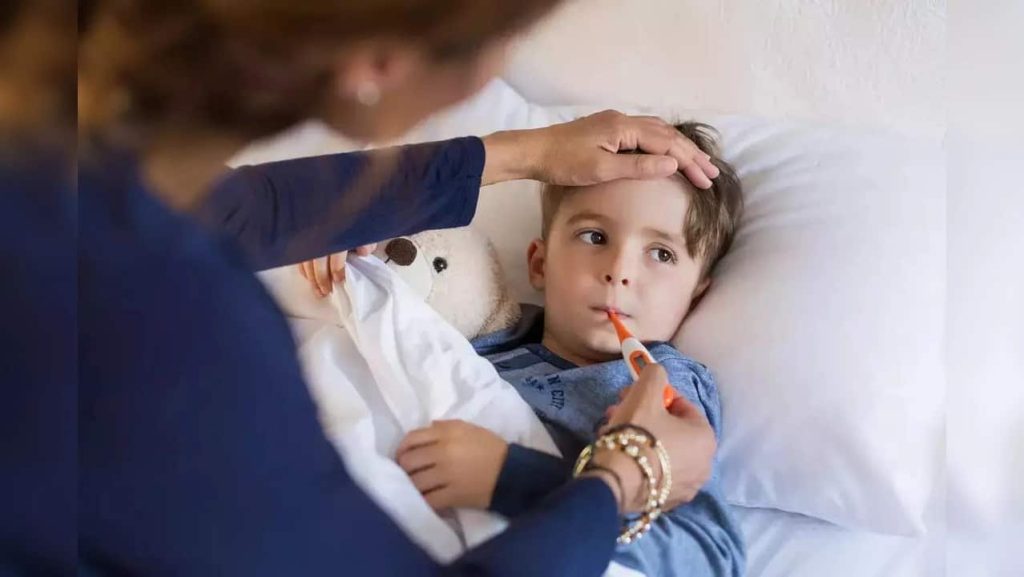Rubella, often referred to as German measles, is a highly contagious viral infection caused by the rubella virus. While generally causing a mild illness in children and adults, rubella infection during pregnancy can lead to devastating consequences for the developing fetus, resulting in congenital rubella syndrome (CRS). Understanding rubella transmission, symptoms, and prevention, particularly the vital role of vaccination, is essential in safeguarding individual and public health.

Rubella Virus: An Overview
The rubella virus is a single-stranded RNA virus that belongs to the Matavirus genus within the Togaviridae family. It primarily spreads through respiratory droplets produced when an infected person coughs or sneezes. Rubella is a preventable disease through vaccination, yet outbreaks still occur in communities with low vaccination rates.
Rubella Symptoms
Rubella symptoms typically manifest 14 to 21 days after exposure to the virus. While many infected individuals experience mild or no symptoms, the hallmark signs of rubella include:
- Mild Fever: Typically below 102°F (39°C)
- Rash: A characteristic pink or red rash that begins on the face and spreads to the body.
- Swollen lymph nodes: Particularly the glands behind the ears and in the neck.
- Runny nose (Coryza)
- Headache
- Muscle aches
- Joint pain (arthralgia): More common in adults, especially women.
Rubella: Consequences During Pregnancy
The most significant risk associated with rubella lies in the potential for congenital rubella syndrome (CRS). When a pregnant woman contracts rubella, particularly during the first trimester, the virus can cross the placenta and infect the developing fetus. CRS can cause a range of serious birth defects, including:
- Deafness: The most common CRS-related birth defect.
- Cataracts: Clouding of the lens of the eye.
- Heart defects
- Intellectual disability
- Liver and spleen damage
- Glaucoma: Increased pressure within the eye.
- Microcephaly: Abnormally small head size.
Rubella Prevention: The Importance of Vaccination
The most effective way to prevent rubella and protect against CRS is through vaccination with the measles, mumps, and rubella (MMR) vaccine.
Rubella Vaccination Schedule:
- First dose: Typically given at 12-15 months of age.
- Second dose: Administered between 4-6 years of age, typically before entering school.
It is crucial for all individuals, particularly women of childbearing age, to ensure they are fully vaccinated against rubella.
MedicW Recommendation: MMR Vaccine Supplies and Protective Gear
- Syringes and Needles: MedicW supplies high-quality, sterile syringes and needles specifically designed for MMR vaccine administration, ensuring safe and effective vaccination practices.
- Latex and Nitrile Gloves: For healthcare professionals administering the MMR vaccine, protecting both the healthcare provider and the recipient from potential contamination.
- Protective Apparel: Including gowns and masks for healthcare professionals to maintain a sterile environment during vaccination procedures.
Rubella Transmission: How the Virus Spreads
Rubella primarily spreads through respiratory droplets released into the air when an infected person coughs or sneezes. These droplets can be inhaled by susceptible individuals nearby or can land on surfaces and be transferred indirectly through touch. Rubella is highly contagious, and a person can be infectious for up to a week before and after the rash appears.
Rubella Treatment
Currently, there is no specific antiviral treatment for rubella. Treatment primarily focuses on managing symptoms:
- Rest: Get ample rest to allow the body to fight the infection.
- Fluids: Stay hydrated to prevent dehydration, especially if fever is present.
- Over-the-counter pain relievers: Acetaminophen (Tylenol) or ibuprofen can help relieve fever and body aches.
- Isolation: Infected individuals should avoid contact with susceptible individuals, especially pregnant women, to prevent transmission.
Rubella FAQs
1. How serious is rubella?
Answer: While generally mild in children and adults, rubella poses a severe risk to pregnant women and their developing fetuses. It can lead to congenital rubella syndrome (CRS), causing serious birth defects.
2. Can I get rubella if I’ve been vaccinated?
Answer: The MMR vaccine is highly effective in preventing rubella. However, in rare cases, some individuals who have been vaccinated may still develop a mild form of the illness if exposed to the virus.
3. How long is someone contagious with rubella?
Answer: An individual with rubella can be contagious from up to one week before the rash appears until about one week after the rash fades.
4. Can adults get rubella?
Answer: Yes, adults can get rubella. While it typically causes a milder illness in adults compared to children, it can still result in significant complications, especially for pregnant women.
5. How is rubella diagnosed?
Answer: A blood test can detect the presence of rubella antibodies, confirming the diagnosis.
6. How can I protect my unborn baby from rubella?
Answer: Ensuring that you are vaccinated against rubella before pregnancy is the most crucial step in protecting your unborn baby from CRS.
Rubella: Conclusion
Rubella, though often presenting as a mild illness, remains a significant public health concern due to its potential to cause congenital rubella syndrome (CRS) in pregnant women. Vaccination is the most powerful tool in preventing rubella and protecting vulnerable populations.
MedicW is dedicated to supporting healthcare providers and individuals in their efforts to prevent rubella through high-quality medical supplies for vaccination, diagnosis, and management of rubella cases.
We strongly encourage everyone:
- Get vaccinated against rubella with the MMR vaccine.
- Ensure your vaccination status is up-to-date.
- Consult with a healthcare professional if you have any concerns about rubella or vaccination.
Together, we can prevent rubella and eliminate the devastating effects of congenital rubella syndrome.
MedicW is committed to being your trusted partner in providing high-quality medical consumables. Explore our comprehensive range of products and discover how we can support your healthcare needs. Visit us at medicw.com or contact our team at [email protected].
Link to this article: Rubella (German Measles): Protecting Vulnerable Populations
